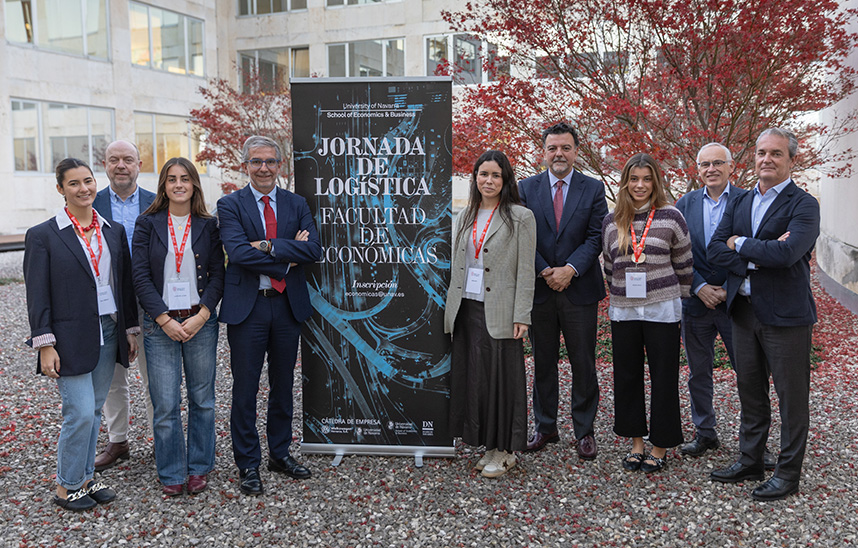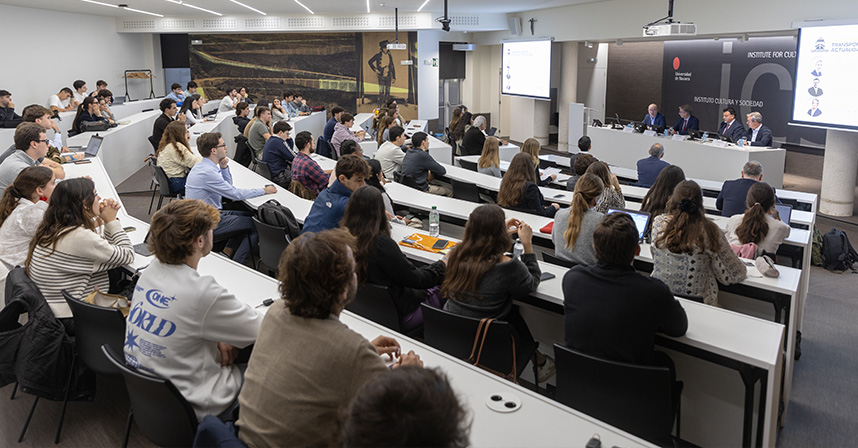Sustainability, digitalization and partnership, pillars core topic for the future of the maritime sector.

FotoManuelCastells/Speakers and committee organizer of the workshop.
The IX workshop Logistics of the University of Navarrafocused this edition on the challenges facing the maritime sector, highlighted sustainability, digitalization and partnership as essential axes for the development of the sector in an increasingly uncertain global environment. Organized by the School Economics and the Chair of business Volkswagen Navarrathe workshop brought together more than one hundred students and professionals, and counted with the participation of César Díaz, president of the Port of Santander; Artur Allende, director commercial of Noatum Automotive; and Jordi Martí, president and CEO of Ibérica Marítima.
César Díaz opened the workshop with a discussion paper on the "Port of Santander and its economic impact," in which he stressed the importance of theeconomic self-sufficiencyof Spanish ports and proposed a strategic plan towards 2030 to improve their competitiveness without depending on the state budget . In addition, Diaz addressed the geopolitical and economic tensions that impact the future of ports and highlighted the relevance of the port of Santander in the regional employment .
Strengthening the competitiveness of maritime transport
For his part, Artur Allende described how Noatum Automotive has responded to successive crises, from pandemics to semiconductor shortages and the recent Red Sea crisis. Allende explained Noatum's structure, which operates in three divisions: logistics, maritime and terminals, and stressed the need to "adapt to a changing environment to ensure efficiency in automotive transportation."
Finally, the president and CEO of Ibérica Marítima, Jordi Martí, analyzed the role of the consignee in the maritime logistics chain and highlighted the potential of India as an emerging market in international trade. He also highlighted the role of renewable energies, especially the use of wind, to reduce the environmental footprint of the sector.
The workshop concluded with a consensus on the need to strengthen the competitiveness of maritime transport in Spain and move towards a unified regulation to reduce the carbon footprint of European ports.

The IX workshop Logística brought together more than one hundred students and professionals. Photo: Manuel Castells.




